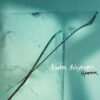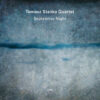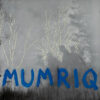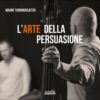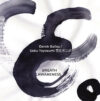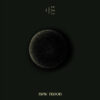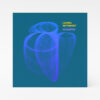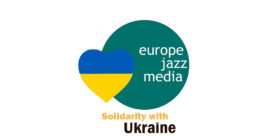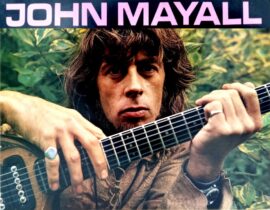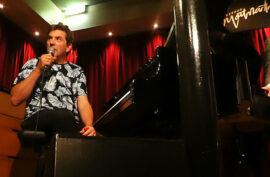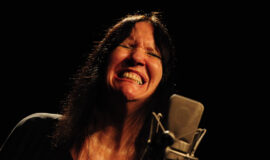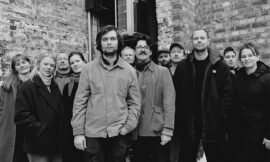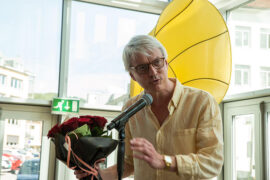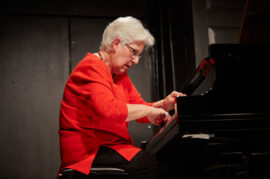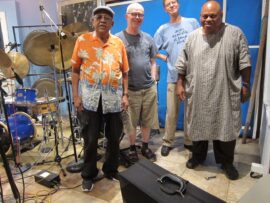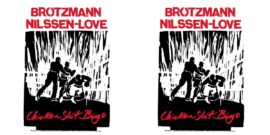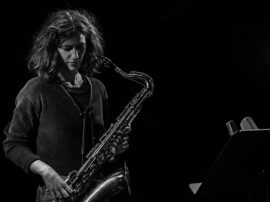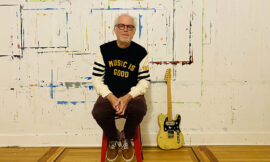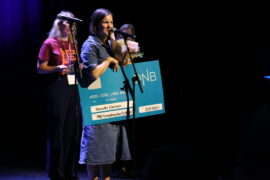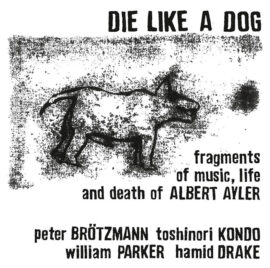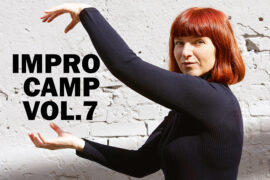Of all the finicky institutions, the Jazz Academy is the most comical oxymoron: wisely derived from its origins more or less pataphysical – Boris Vian, Frank Ténot, three-André, Clergeat, Francis and Hodeir – towards a Areopagus large pointed specialists. Since 1955, it has awarded its prizes – this year at the Chatelet, Monday, February 8, for its sixtieth anniversary.
Sum «of individuals in formidable knowledge» – dixit current President François Lacharme, successor to André Hodeir Maurice Cullaz and Claude Carrière – The Academy meets a strict principle of cooptation that fact that Lucien Malson to Martial Solal through Ferdinand Goaty, no, of some merit in jazz worlds, will not have escaped his recruitment.
An «All Stars Price Django Reinhardt»
The price Django Reinhardt back this year to the brilliant pianist Paul Lay (surname Pyrenean to pronounce as «Hendaye» or the town of Nay) no surprise. Although the price has long rewarded one or a musician (do) so young. Andy Emler, his great elder, figured, let us note, among the «nominees» but there is a price.
Part scene, an «All Stars Price Django Reinhardt» René Urtreger piano (born in Paris in 1934, winner 1961), surrounded by Henri Texier (bass), Eric Le Lann and Airelle Besson (trumpets), Pierrick Pedron Stephane Guillaume and Géraldine Laurent (sax), Simon Goubert (drums). Heavy.
«The talent has no Passport»
The prize awarded to the European player for all his work back to 2016, John Surman, multi-instrumentalist (sax and reeds) of international reputation, born in Tavistock (England) in 1944.
When he joined the Mike Westbrook in 1962, the London scene is, in all the arts, overactive «The sixties were an amazing time. No reason for this: rather the result of a conjunction that only happens once in life, Berlin, Paris, New York, just to be there. It was very exciting to live in London at that time. Besides the emergence throughout Europe, many jazz musicians who begin to assert itself outside the mainstream of American jazz. »
English or European musician? «I do not pay attention to issues of national identities. The talent has no passport. That said, my early years when I was singing the English National Song Book, certainly influenced my ear. »
Synthesizers and electronic effects
John Surman grew up in Plymouth. From there, his love of the country he travels by bicycle, these landscapes that are reflected in his music. «I loved to swim, I practiced sailing, and that’s where I met Mike Westbrook! «A solo album, hypnotic much as fascinating Upon Reflection (ECM), a turning point:» When I started recording in the mid-1960s, the discs were still in mono; stereo was already a major step forward! Suddenly we have the ability to record multitrack. Unheard of! I knew the music of Pierre Henry and emerging potential of electronics. That was before the synthesizer becomes accessible for a price that did not need to rob a bank … »
Surman obtains his first EMS synthesizer. Academic critics then twist the nose, the ear and the rest before the synthesizers and electronic effects «but I continued experimenting on these instruments with GRTOP (Theatre Research Group of the Paris Opera) directed by Carolyn Carlson, with Barre Phillips, etc. When Manfred Eicher asked me to record for ECM in 1979, I chose to use these techniques, after which, according to the evolution of technologies and processes, everything follows. «All the more paradoxical approach in Surman, that his meetings, duos, trios and others, are countless. Especially with Jack DeJohnette and Karin Krog: «Alone, the approach seems to be more of the composition or painting a canvas. »
«An exceptional soprano voice»
Few men talking about their moult (Pascal Quignard?): «As a child I had a voice of exceptional soprano. I say in all modesty, because when I listen to old recordings, I can hardly believe that such a vote was never mine! We solicited me for many solo parts, especially in liturgical music. I must say that I loved it – and the choral discipline also allowed me to acquire basic musical skills. I do not think I have been aware at the time, but when my voice changed, the practice of music I really missed. »
So he buys a used clarinet: «I think this is its value – £ 2.50 if I remember correctly – that pointed me to the instrument … I heard some traditional jazz on the radio, I started by playing «dixieland» but Karin Krog says she can still hear my voice boy soprano in my game. Who knows ? »
Fidelity intact
February 8 at the Chatelet, John Surman celebrated its price, as Jean-Luc Ponty (winner 1966), with the best training dedicated to Duke Ellington, one of his teachers, the Duke Orchestra Laurent Mignard. At the piano, Philippe Milanta, another winner for his duet with André Villéger (For Duke and Paul).
Read Review: André Philippe Milanta Villéger and, over a hundred years of jazz
Didier Desbois in the role of Johnny Hodges, Carl Schlosser in Paul Gonsalves, Philippe Chagne in Harry Carney found – superb interpretation of Sophisticated Lady, held note and the final descent of origin. In a high-class management, Laurent Mignard can either venture into the valves on the «big baritone instrument, ladies,» who had raised eyebrows in the Chauvet cave. That’s Jazz, Folks!
As for John Surman, he managed the feat to interpret Passion Flower with pristine fidelity, without letting go of his own personality. That Duke liked among his Ellingtonian. Child subliminal voice soprano Tavistock bonus.
Learn more about http://http://www.lemonde.fr/musiques/article/2016/02/09/john-surman-celebre-son-prix-du-musicien-europeen-au-chatelet_4862105_1654986.html#v6xmg7Iw4C2Slti5.99

